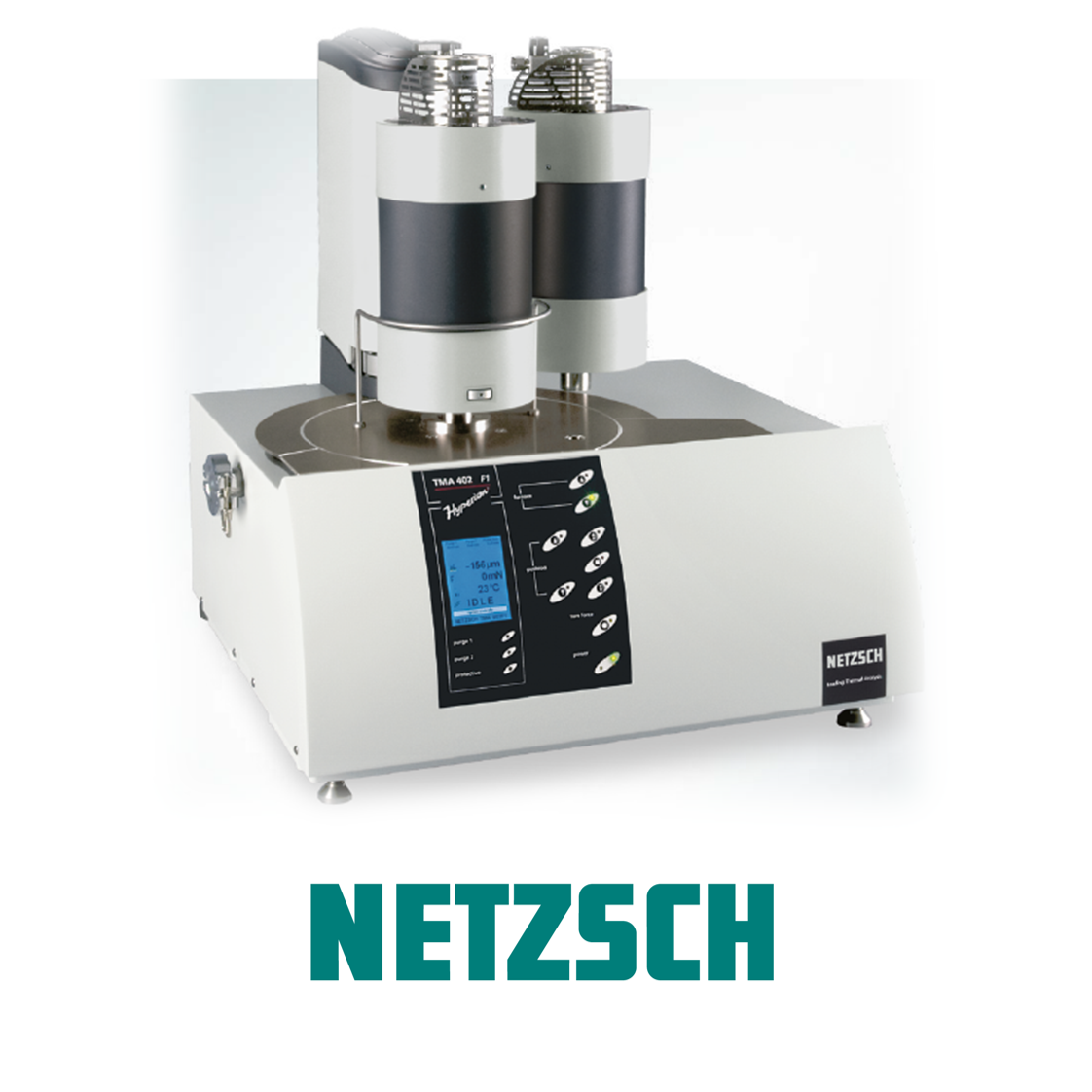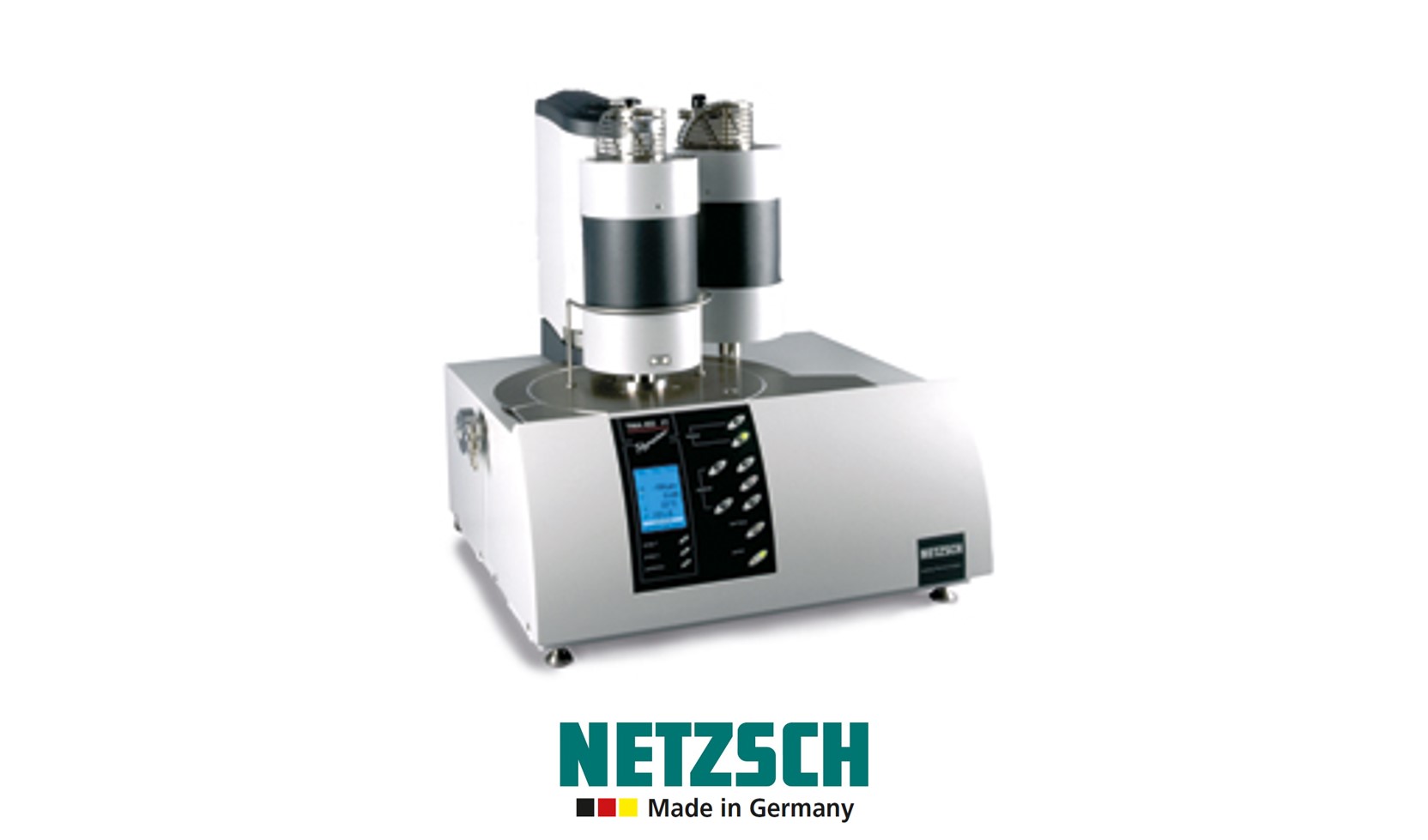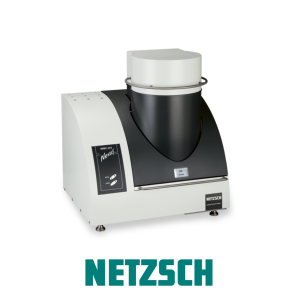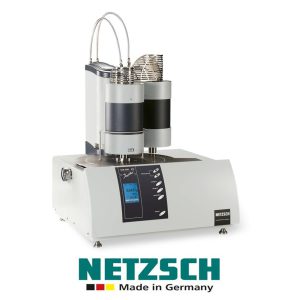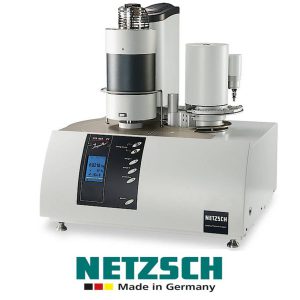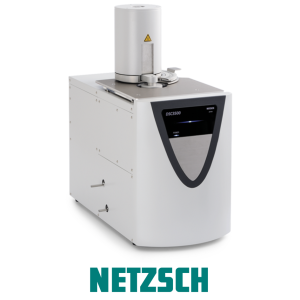תיאור
Thermomechanical Analyzer – Vertical Dilatometer
The heart of the TMA 402 Hyperion® is a highly precise inductive displacement transducer (LVDT).
This technology has stood the test of time; it is also used for dilatometers and allows measurement of even the smallest of length changes, into the nanometer range (digital resolution of 0.125 nm).
Simultaneous measurement of force and displacement signal
The force operating on the sample is generated electromagnetically in the TMA 402 Hyperion®. This guarantees a quick response time for experiments with a changing load, e.g. tests on creep behavior. A highly sensitive force sensor (digital resolution < 0.01 mN) continuously measures the force exerted via the push rod and readjusts it automatically. This sets the TMA 402 Hyperion® apart from other instruments, which use only preset values.
Vacuum-tight thermostatic measuring system
The entire TMA 402 F1/F3 Hyperion® measuring system is thermally stabilized via water-cooling. This ensures that the measurement will not be influenced by heat from the furnace or by temperature fluctuations in the local environment. All joints have a vacuum-tight design to allow measurements in a highly pure atmosphere or under vacuum. Pressures of less than 10-4 mbar can be achieved in the TMA 402 F1/F3 Hyperion® with the use of a turbo molecular pump. In combination with the integrated mass flow controllers (MFC) for purge and protective gases (optional in the TMA 402 F3 Hyperion®), measurements in highly pure inert gas or in oxidizing atmospheres can be optimally controlled
Precise force control
The electronic control system for the TMA 402 Hyperion® allows forces to be set in the mN-range. This enables testing even on sensitive materials such as thin fibers or films. The force operating on the sample can be altered via the software in a stepwise or linear fashion. This makes it particularly simple to carry out such analyses as creep or stress sweep tests. The premium version of the TMA 402 Hyperion®, the TMA 402 F1 Hyperion®, provides even more capabilities. From single pulse in rectangular or ramp form to continuous modulation with a freely selectable frequency (up to 1 Hz), every possibility is covered. This model is particularly well-suited for determining visco-elastic material properties such as elasticity and creep modulus.
Key Technical Data
(subject to change)
-
Max. sample length
30 mm
-
Measuring range
± 2.5 mm
-
Dig. resolution (length)
0.125 nm
-
Force range
0.001 N to ± 3 N in steps of 0.2 mN
-
Dig. resolution (force)
< 0.01 mN
-
Modulated force
Up to 1 Hz (only F1)
-
Final vacuum pressure
< 10-4 mbar
-
Gas connections
Protective gas, 2 purge gases
-
Temperature range
-
-150°C to 1550°C
| Feature | Advantage | Benefit |
|---|---|---|
| Modular Concept | Furnaces are interchangeable and compatible with other NETZSCH instruments | Synergies in procuring and operating, easy and cost-effective expansion and retrofitting |
| Gas flows controllable via software |
Programmable atmosphere change | Analysis of, for example, oxidation behavior without manual valve operation |
| Digitally programmable force control up to 3 N |
Force alteration (linear/stepwise), continuous force modulation (TMA 402 F1Hyperion®) |
Determination of visco-elastic properties |
| A variety of accessories, e.g. special sample holders, immersion baths |
Expansion of the application range | Measurement of powders, liquids, pastes or metals (until melting), immersion measurements |
Features specific to TMA:
- Various correction possibilities for taking the expansion behavior of the system itself into account, as well as offset and sample length correction
- Automatic adjustment of sign for force and displacement signal to the measurement configuration being used
- Routines for the determination of characteristic temperatures such as onset, peak and final temperatures
- Evaluation of glass transitions and softening points in accordance with DIN
- Automatic shut-off at softening point
- Expansion coefficients: Calculation and presentation of the technical and physical expansion coefficients
- Automatic sintering step evaluation
- Rate Controlled Sintering (RCS) Software: Sintering with a constant shrinkage rate (optional)
- Measurements with variable force: Determination of visco-elastic properties
Extensions:
-
c-DTA® function:
Evaluation of the temperature signal for endothermic or exothermic effects
-
Thermokinetics:
Extensive characterization and optimization of sintering processes
-
Density Software:
Determination of changes in volume and density until the liquid state
-
Peak Separation:
The separation of overlapping effects


